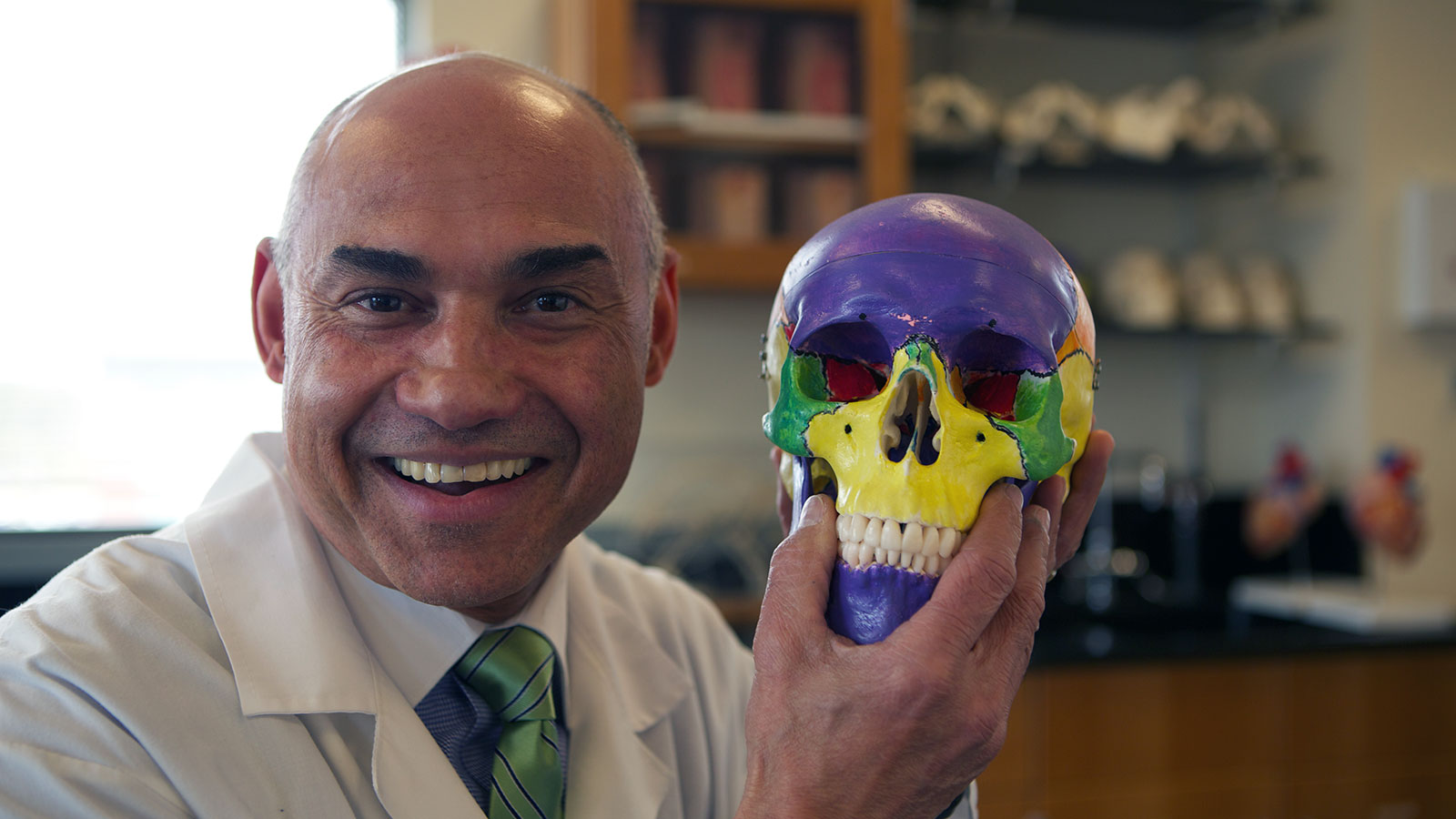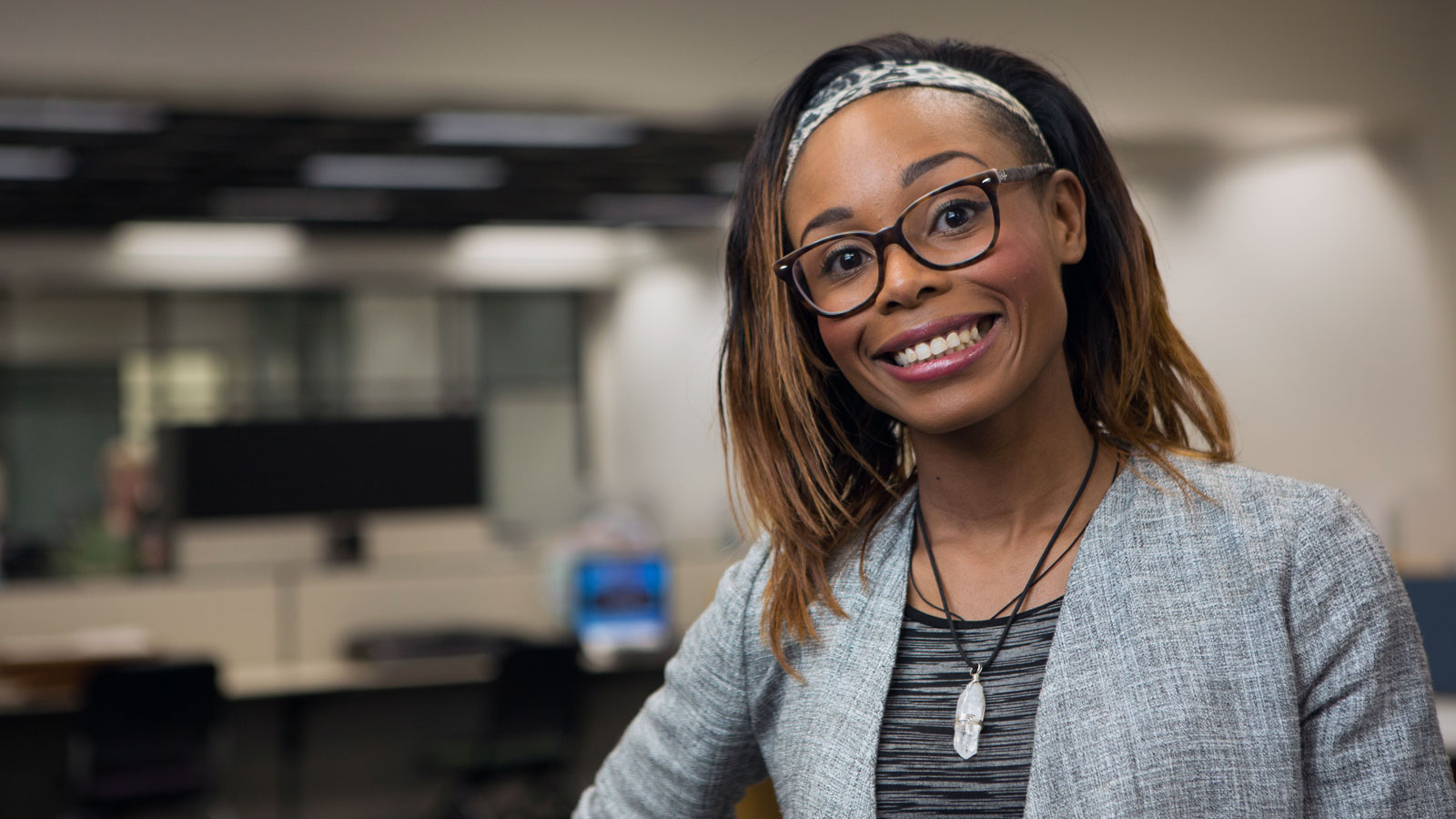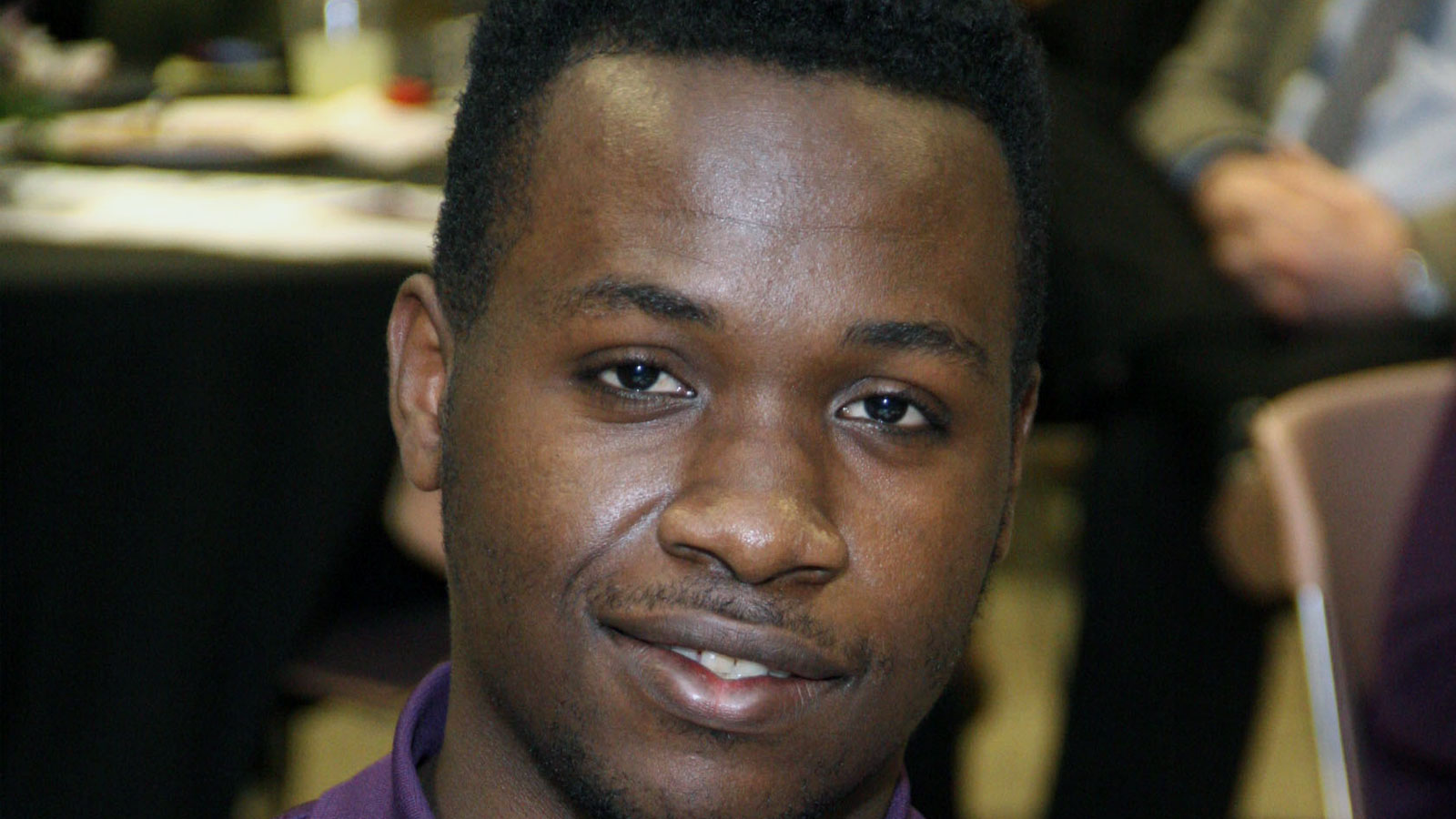
“I want my students to understand that their bodies are part of who they are, that they need to respect their bodies, that they need to nurture their bodies, and that they need to look after their bodies.”
The ocean made an impression on Biology Professor Shaheem Abrahams. Near his home in South Africa's Cape Town, people have their choice of oceans in which to swim. There's the Atlantic, icy-cold due to the Benguela current coming up from Antarctica, or the Indian Ocean, almost bath-like owing to the warm Mozambique current coming down from the Equator. However, Abrahams was limited as to which beaches he could visit because of segregation under apartheid. It was at these beaches, designated for usage by non-whites, that he spent his summer days snorkeling through channels. The ocean life he saw in those channels fascinated him, and still does to this day.
A United States Agency for International Development (USAID) scholarship for racially under-represented South Africans brought Abrahams to the United States in 1983. The scholarship enabled him to enroll at Ohio Wesleyan University, where he studied Zoology and Botany to earn a bachelor's degree in Biology. While in Ohio, Abrahams obtained a teaching license and continued his education at the Ohio State University to receive a master's degree. He returned to Cape Town and began working in student advising at the University of the Western Cape. There, he started the SALC (Self-Assessment Learning Center) project to assist high school students with remediation as they transitioned from high school to college. After nearly three years in Cape Town, Abrahams' family returned to the United States to be near his wife's parents in Williamsburg, Va. He took a job at York High School, teaching Anatomy, General Biology and Advanced Placement Biology. He later moved over to Lafayette High School to teach Anatomy and Chemistry while also serving as a girls' soccer coach for the school. In 1995, Abrahams began teaching at Virginia Peninsula as an adjunct instructor and became full-time faculty in 2003.
Though he still enjoys studying sea life, Abrahams has found a new passion in the life sciences, educating about the human body. At Virginia Peninsula he teaches classes in Human Anatomy and Physiology, and invites his students to "come along on a journey through their respective bodies." Since joining the faculty, Abrahams has been committed to providing new opportunities for student success. He noticed that the BIO 145 (Human Anatomy & Physiology for the Health Sciences) course had a high attrition rate and, as part of the Biology department, collaborated with the Nursing program to create a solution. Abrahams advocated bringing the class from one semester to two semesters, and adding BIO 101 (General Biology) as a prerequisite, so that more students would be familiar with the material before enrolling in the courses and had more time to successfully learn new concepts. Since implementing the changes, student outcomes and success have dramatically improved.
Abrahams isn't only interested in helping his students succeed in their studies, he wants to help them achieve success in their personal health. He even founded an extracurricular club, One More, which promotes fitness and leadership. When talking about which lessons he hopes his students learn from his classes, Abrahams emphatically replies, "I want my students to understand that their bodies are part of who they are, that they need to respect their bodies, that they need to nurture their bodies, and that they need to look after their bodies."



